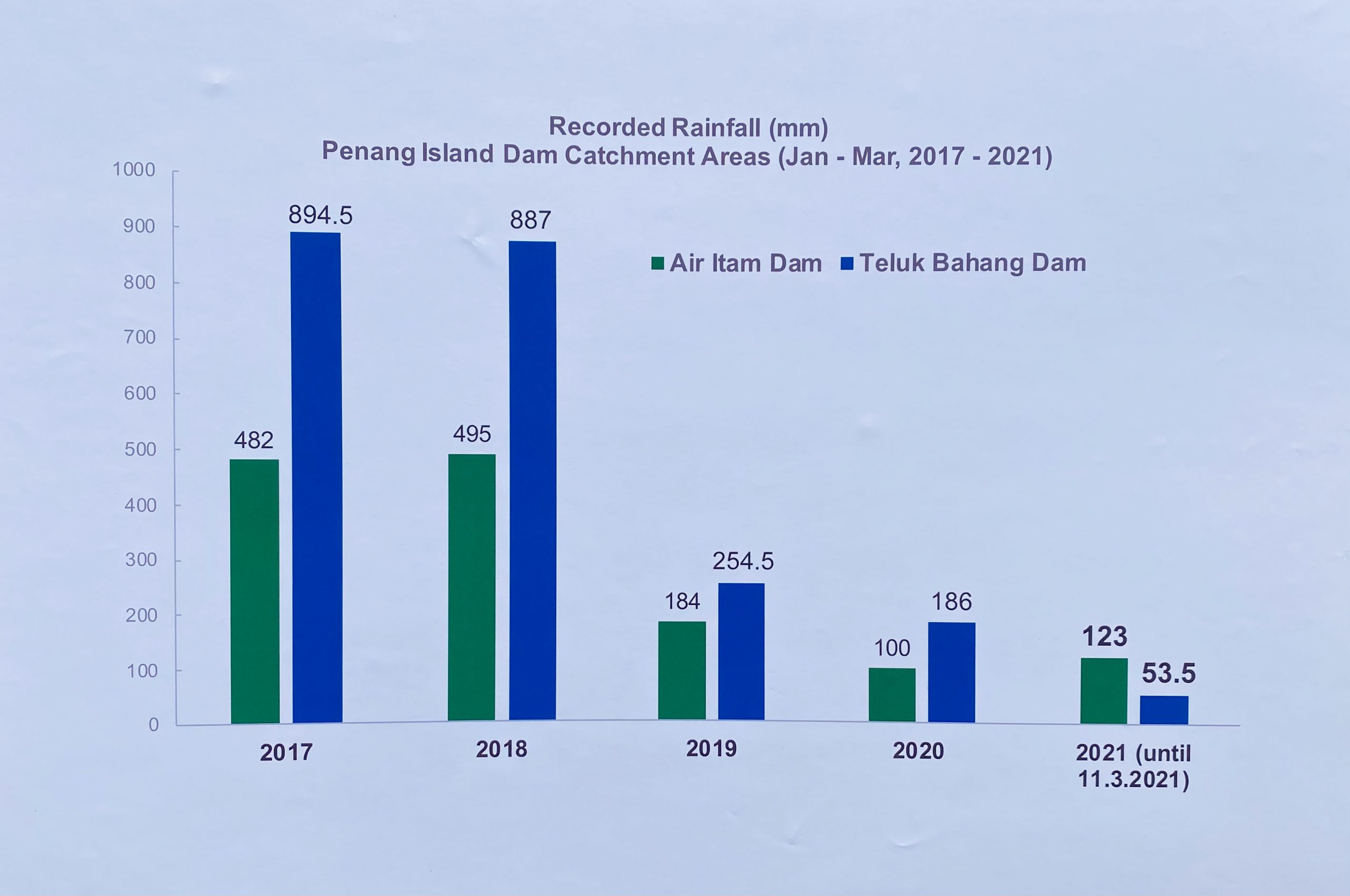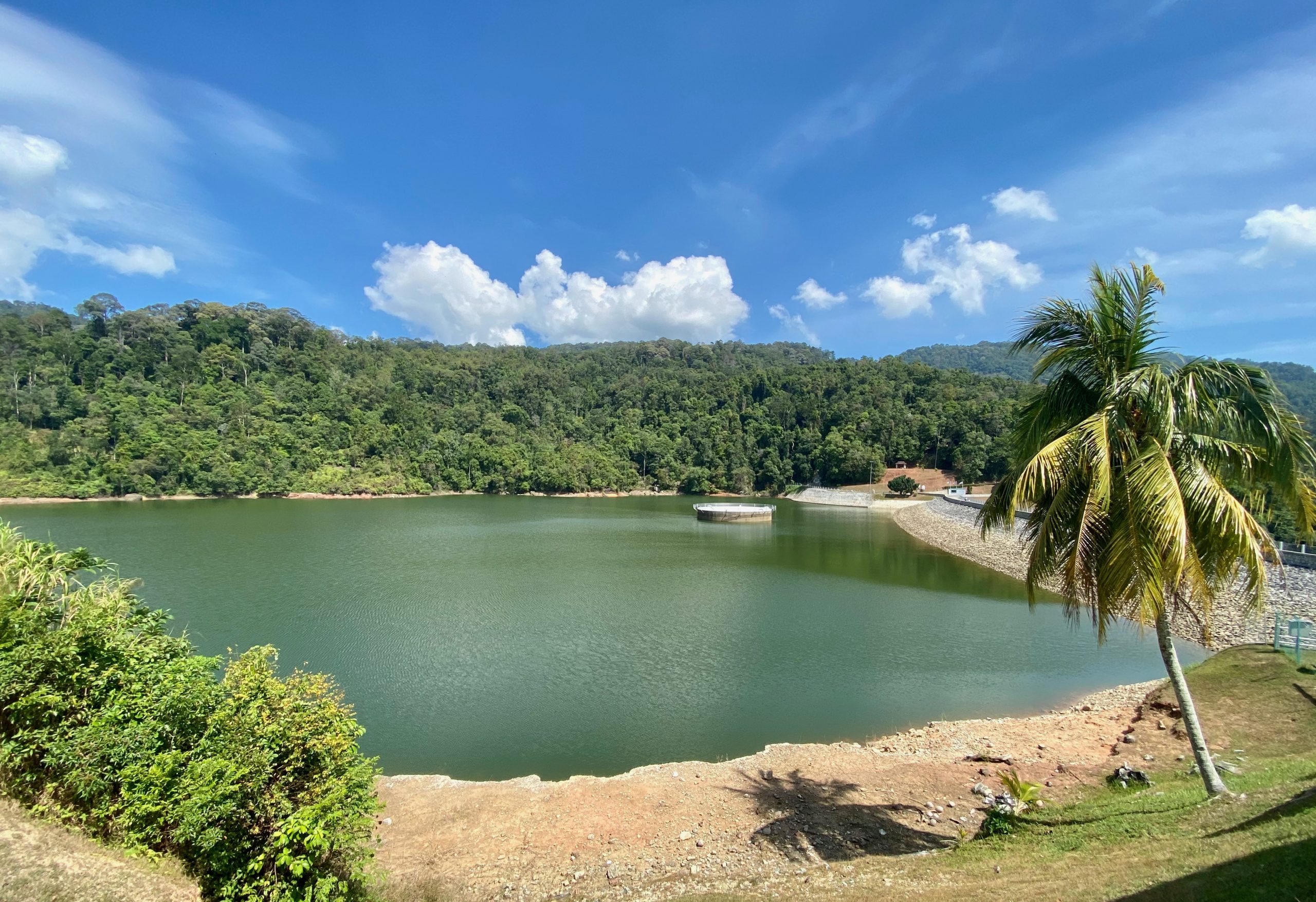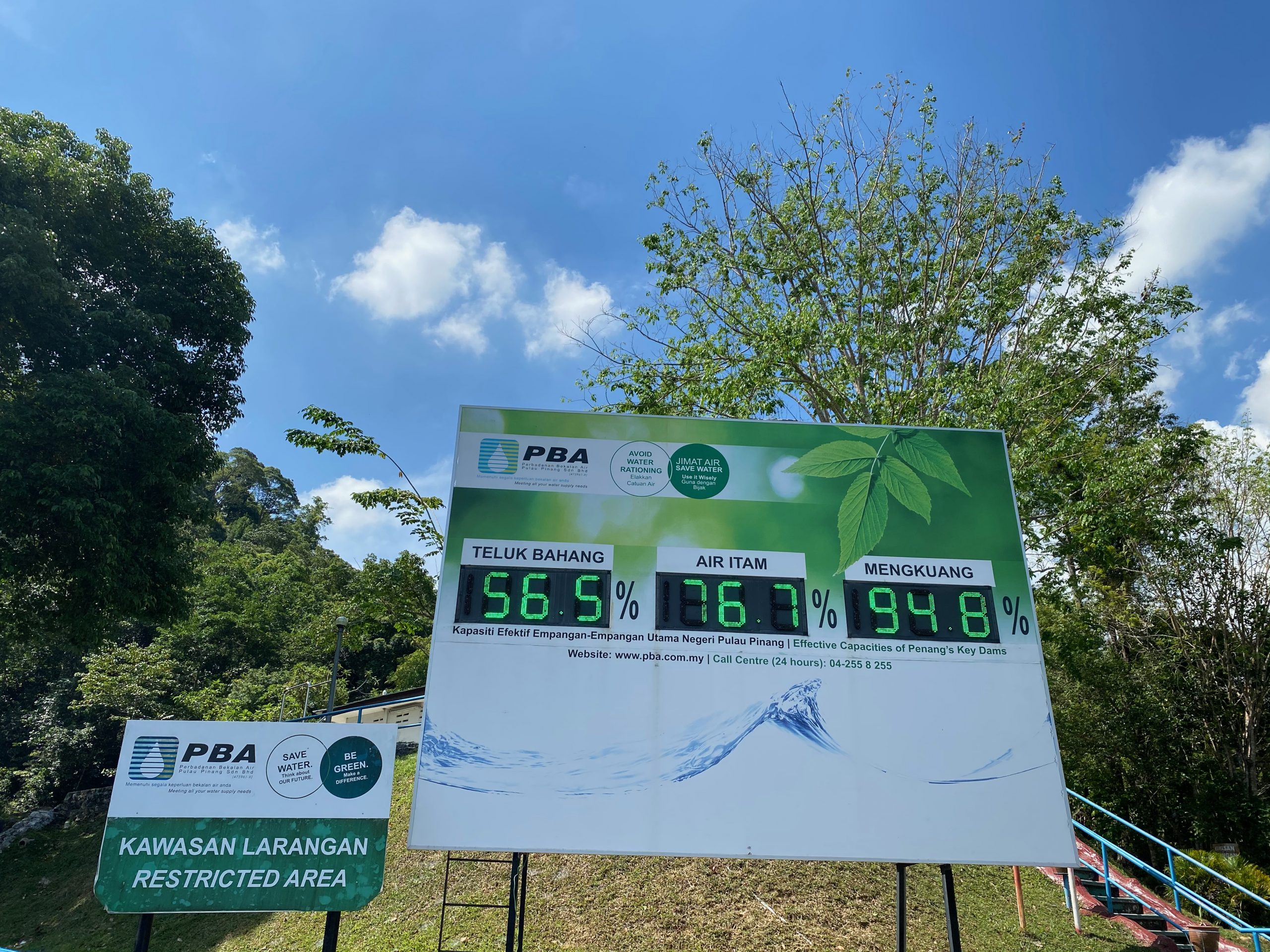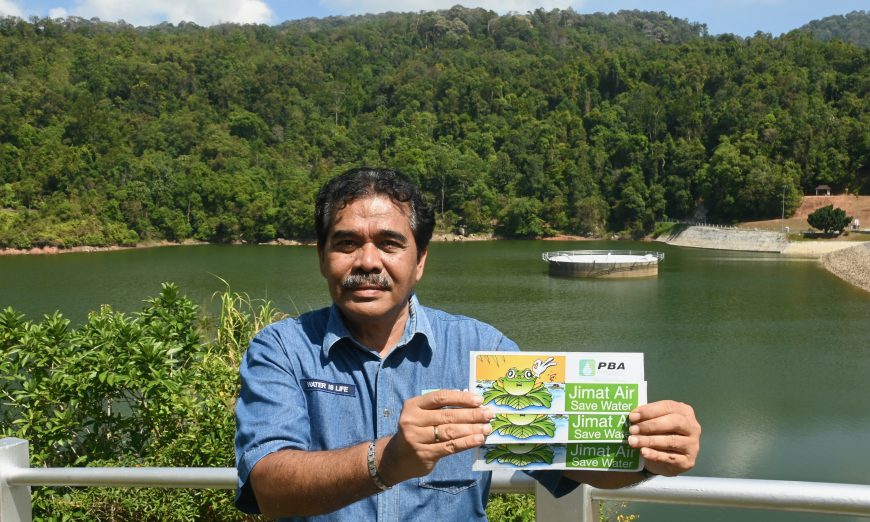THE Penang Water Supply Corporation (PBAPP) has issued its first water alert this year today and at the same time has also announced that it would recommend cloud seeding operations to the Penang government in view of the insufficient rainfall.
PBAPP chief executive officer Datuk Jaseni Maidinsa said the Air Itam Dam would be able to supply water for about another 75 days, Teluk Bahang Dam for another 170 days, and Mengkuang Dam for over 200 days.
He said PBAPP would propose about 15 cloud seeding operations at the Air Itam Dam and Teluk Bahang Dam areas as were similarly conducted last year to help the state have adequate water supply.
He added that each cloud seeding operation cost RM30,000 last year and the total amount of RM450,000 spent was borne by the state government.

“The objective to have cloud seeding operations is to achieve a minimum of 80% effective capacities in the Air Itam and Teluk Bahang dams by December this year,” Jaseni told a press conference at the Air Itam Dam today.
“Dry weather water supply engineering control measures have been initiated in Penang due to minimal rainfall in the water catchment areas of the Air Itam and the Teluk Bahang Dam since Jan 1 this year.
“Penang is in the midst of an annual dry season, with some rainfall expected in April or May this year. Due to climate change, it is difficult to predict the amount of rainfall in April or May.
“Please remember that the dry seasons in 2019 and 2020 were prolonged until July.
“PBAPP must strive to sustain continuous good water supply services to support Penang’s on-going battle against the Covid-19 pandemic. Without water, you cannot wash your hands.”

Jaseni explained that cloud seeding could only be done when there are rain-bearing clouds at the dam area.
He said there may be some rain in April or May but the “real rain” would come during the inter-monsoon period from September.
Jaseni also said the effective capabilities of the Air Itam Dam and Teluk Bahang Dam and the rainfall there have fallen drastically this year compared to the last four years.
He said from Jan 1, 2021 to March 11, 2021, the effective capacities of the Air Itam Dam and the Teluk Bahang Dam have reduced by 17.9% and 2.0% respectively because there was insufficient rainfall to “recover” the daily draw downs.
The effective capacity of Air Itam Dam was 95.2% on Jan 1, 2021 and 77.3% on March 11, 2021, while the effective capacity of Teluk Bahang Dam was 58.7% on Jan 1, 2021 and 56.7% on March 11, 2021.
The primary service areas of the Air Itam Dam are Air Itam and Paya Terubong while the primary service areas of the Teluk Bahang Dam are Teluk Bahang, Batu Ferringhi and Tanjung Bungah.
In terms of rainfall, Jaseni said the Air Itam Dam recorded 123mm from Jan 1 to March 11 this year, compared to an average (from 2017 to 2020) of 315.3mm. This showed a -61.0% variance.
For Teluk Bahang Dam, it recorded 53.5mm rainfall from Jan 1 to March 11 this year, compared to an average (from 2017 to 2020) of 555.5mm. This showed a -90.4% variance.

Jaseni added that PBAPP must draw down the reserves of the two dams on a daily basis to support water supply in those areas.
He said PBAPP would maximise water abstraction from Sungai Muda at the Lahar Tiang Intake and pumping the raw water to the Sungai Dua Water Treatment Plant for treated water production.
Another water control measure he said would be to optimise water production from the Sungai Water Treatment Plant (Penang’s largest water treament plant) in Seberang Perai and pumping treated water from the plant to Penang island, via submarine pipelines, to ensure water supply sufficiency.
He said the third submarine pipeline was completed in November last year.
Mengkuang Dam in Seberang Perai does not have water issue problem. In fact, its effective capacity was 94.9% yesterday.
Jaseni said PBAPP could draw down raw water from the Mengkuang Dam to support water production at the Sungai Dua Water Treatment Plant when necessary.
In the meantime, he urged Penang water consumers to use water wisely during this dry season by adopting three key practices immediately to reduce their water consumption. They are:
- Avoid using a hose to clean your home or wash your vehicle. Use a broom and a mop to clean your home. Wash your car or motorcycle less often, and use a bucket and sponge when you do so.
- Do not use a hose to water your garden or plants every day. Use a watering can instead.
- Do not leave a tap running. Shut off every tap after use and kindly teach your children to follow your example.
For more water saving tips, please visit www.pba.com.my
Story by K.H. Ong
Pix by Alissala Thian

